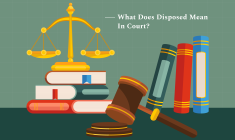Borrowing money can feel like a lifeline when things get tight. Bills piling up? An emergency expense? Or maybe it’s something bigger, like finally going after that dream house.
Whatever the reason, taking out a loan isn’t just about numbers—it’s a legal commitment. Once you sign, you’re locked in. That’s why it pays (literally) to know exactly what you’re agreeing to.
At The Legal Guides, we try to strip away the jargon and talk straight. This guide’s all about the fine print: the rules, the risks, and the sneaky stuff lenders don’t always advertise. If you’re thinking about borrowing, here’s what you should know before your pen hits the paper.
Borrowing Arrangement: The Legal Foundation of Borrowing Agreements
Here’s the bottom line: a loan is a contract. You borrow money, they set the terms, and both sides are bound to it. The paper you sign lays it all out—amount borrowed, interest rate, repayment schedule, and what happens if you stop paying.
The problem? A lot of folks don’t actually read those details. They skim, sign, and hope for the best. That’s how hidden fees and “gotcha” clauses sneak up on you later.
Now, by law (thanks to the Truth in Lending Act, or TILA, in the U.S.), lenders are supposed to be clear. They have to show you the APR, the total loan cost, and other key info. If they don’t—or if they fudge the details—you might actually have grounds to fight back.
Pro Tip: You should always keep a signed copy of your agreement. If anything goes south, that piece of paper is your strongest shield.
Interest Rates and Usury Laws: Know Your Limits
Interest rates. They can make or break loans. Some are reasonable, sure. Others? They’re borderline predatory. That’s where usury laws come in—rules that cap how much lenders can legally charge you.
The catch: every state does it differently. One state might slam payday lenders with strict limits. Another lets them charge sky-high rates without blinking.
So here’s the thing—if a rate feels way too high, don’t just shrug and sign. Ask questions. Talk to a lawyer if you can. In some cases, a lender charging above the legal cap means the contract isn’t even enforceable.
Imagine dodging thousands in interest just because the lender broke the rules. It happens. That’s why checking your state’s limits is a smart move before agreeing to anything that looks, well… suspicious.
Collateral And Secured Loans: What’s At Stake With Borrowing Arrangement?
Not every loan is just about numbers on a page. Many are “secured,” meaning you’ve got to put something on the line—your house, your car, maybe even business equipment. Collateral, in other words.
Lenders like it because it lowers their risk. You might like it because it lowers your interest rate. But let’s be real—the risk for you is big. Miss a few payments, and you could lose that property.
And repossession laws? They vary. Some states give you a grace period (a “right to cure”) so you can catch up. Others allow the lender to swoop in almost immediately.
So, before you sign off on a secured loan, know the rules in your state. Otherwise, you might be gambling with more than you realize.
Credit Scores And Legal Implications of Default
Sure, credit scores matter—they decide whether you can borrow and what you’ll pay. But defaulting on a loan does more than ding your score.
It can open the door to lawsuits, wage garnishments, or liens slapped on your property. And if your debt gets sold to a collection agency? Brace yourself. Those folks can be relentless.
The good news: the Fair Debt Collection Practices Act (FDCPA) has your back, at least a little. Collectors can’t harass you, threaten you, or flat-out lie. If they do, keep records—every call, every email. You can report them.
Better still, don’t wait until it spirals. Talk to your lender early. Many would rather negotiate than drag things into court. A simple phone call could save you from months of stress.
Predatory Lending: How To Spot Red Flags In A Borrowing Arrangement?
Not every lender has your best interest in mind. Some are flat-out predators. They dangle “easy money” but pack the contract with crazy fees or repayment setups designed to trip you up. These practices often violate consumer protection laws, but they can be challenging to identify at first glance
So how do you spot them? A few giveaways:
- They pressure you to sign fast, no time to think.
- The loan has balloon payments—huge sums due at the end.
- They don’t even bother checking if you can afford it.
If any of that pops up, slow down. Trust your gut. The Consumer Financial Protection Bureau (CFPB) has resources to check lenders and even file complaints. A quick background check on the company’s license or reputation could save you years of regret.
Read Also: How To Get A Loan For An Investment Property And Build Long-Term Wealth Through Real Estate?
Your Legal Guide: Borrow Smart, Stay Protected
Borrowing isn’t bad. In fact, it can be the key to big goals—buying a home, paying off an emergency, or starting something new. But it’s not something to walk into blind.
Read everything. Ask questions. Double-check the laws where you live. And if something doesn’t add up? Don’t sign. Simple as that.
At The Legal Guides, we believe knowledge is the best defense you’ve got. The more you understand about interest rates, collateral risks, and your rights, the less chance you’ll get trapped in an unfair deal.
So take your time. Shop around. Only borrow when you’re sure it works for you—not just now, but long-term too.
Because in the end, protecting your future is worth way more than rushing into a loan you’ll regret.
In case you wanted to know about a borrowing arrangement, I hope that this blog has been of help to you. If there are any other queries related to the same, please feel free to let me know.
All that you need to do is scroll down till you reach the bottom of the page. Then leave your comment in the box below. And I will be there to answer them all for you.
















